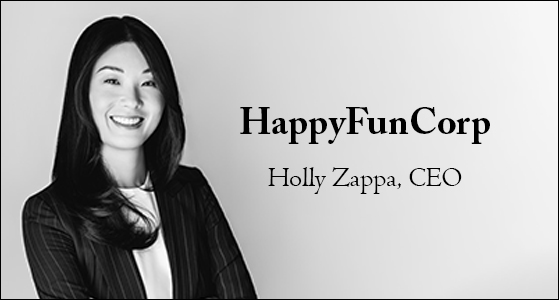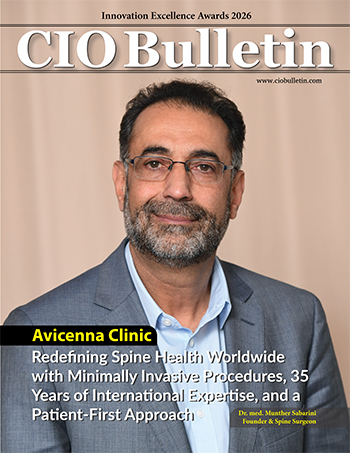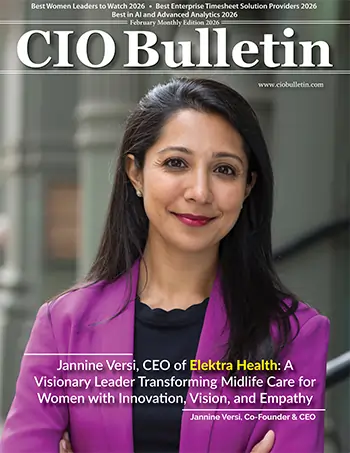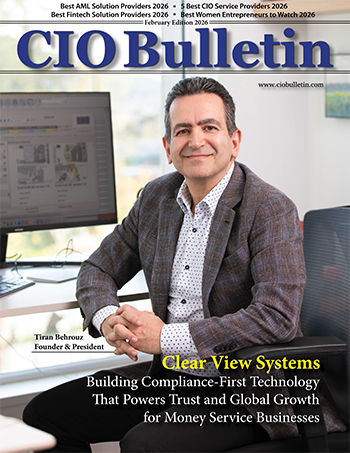CIO Bulletin

In the last decade, Holly Zappa has established herself as a transformative leader at HappyFunCorp (HFC), an innovator in software design and development. Under her guidance, HFC has cultivated a unique culture rooted in expertise, optimism, and teamwork. This ethos resonates with a diverse clientele, ranging from aspiring entrepreneurs to Fortune 500 companies, who seek out HFC for its forward-thinking approach.
Holly’s leadership philosophy emphasizes viewing challenges as opportunities, inspiring her team to prioritize collaboration and idea exchange from the outset of every project. Her commitment to harnessing the collective knowledge of HFC’s global team fosters a creative environment that thrives on humility and productivity, driving meticulous product development.
Under Holly's vision, HFC has consistently delivered innovative solutions that adapt to the ever-evolving technology landscape. By focusing on design centrism, modernization strategies, and agile development, the company not only meets current market demands but also anticipates future needs. Holly believes that the intersection of practices, aesthetics, and practicality is key to creating impactful digital products that solve complex problems, making HFC a leader in the software industry.
End-to-End Solutions for New Product Development
HappyFunCorp (HFC) uses an agile development methodology to create useful applications, upgrade legacy systems, and adopt new technologies like artificial intelligence. They focus on design thinking, offering services like the Product Accelerator and custom embedded teams to improve products and facilitate hiring. Strategic planning helps companies address current challenges and anticipate future business operations in the digital world.
HFC is a leader in the process of product development, capable of implementing projects ‘from scratch’ to the working applications and platforms. Starting from a draught on a paper napkin or a ready-made template, the new product development teams at HFC incorporate a fair amount of user experience and engineering. For this reason, these teams are working within the agile framework to allow for iterative and responsive development processes.
Key steps include as always the definition of the problem and understanding of the target users through research. Design which is supported with user stories and wireframes is followed by an agile build phase where through the use of usage data, tests are conducted and the next build incorporates changes in performance. This means that there is a positive product development cycle where changes are made to the product in line with how customers or the market behaves.
Modernization
In this age with technology growing faster than ever, a number of companies are confronted with the problem of upgrading obsolete systems. HFC helps consider this difficulty by providing in-depth analysis and implementation relative to appropriate technology. The first stage of Modernization is business case development, which aims at obtaining clear, quantifiable objectives, and evaluation of available technologies and processes comes next.
Joint efforts to determine appropriate options provide an ending which is a due delivery road map that comprises such sub-steps enabling phased execution and reducing disruption. By such transition, HFC helps businesses to remain relevant and explore their full potential by introducing new systems such as AI and machine learning.
Product Accelerator
The Product Accelerator service is of great help for the companies looking to improve the already existing products. As the competition increases, HFC’s accelerator helps such businesses with actionable blueprints meant to enhance what is already there. Whether this is about adding features or expanding the architecture, the work itself is about strategist and user experience optimization.
Defining future states is the goal of HFC’s joint ideation workshops, while the goal of product performance improvements is always detailed audits. HFC offers targeted assistance so that businesses do not hesitate to pursue product objectives by drafting a plan with action steps or recommendations in place.
Embedded Teams
Where project requirements increase, HFC gives an option of having custom teams designed for the purpose of the project. The embedded teams’ model provides access to top tier talent enabling organizations to bolster their capacity in a jiffy. This model focuses on a partnership that is very restraining, where individuals are selected for the team depending on their abilities, levels or ranks and the project requirements.
HFC makes sure through a careful selection process and constant engagement that the team does not interfere with the structure and helps in improving productivity and quality of work. This model is such that any changes in the trend of projects can be exceptionally catered for without compromising on quality.
Experience Design
Experience has always been one of the most influential factors in engagement with any product. In this regard, HFC emphasizes experience design and delivers integrated digital experiences to all possible interfaces. The essence of this design philosophy rests in the concept of ‘design for delight’ where every element of the product is made to serve the user while meeting the business goal.
The design process takes place in three key stages i.e. understanding, creating and delivering. The first two steps are devoted to thorough research and internal meetings in order to understand the product and the target audience, and this is done quite extensively. Next comes a stage in which the designers come up with ideas for the design, and develop them with the help of other people’s criticism.
Finally, in the delivery phase there is a lot of emphasis on the interaction of the design team and the engineering team so that the transition from the idea to the actual product is smooth. There are cycles of feedback from the users that make it possible to improve the product and this enhances the overall designing experience.
Strategy
Strategizing is an inseparable part of product evolution and if any entity is keen on, HHC will give both the necessary strategic direction and hands on help. It is recognized that not all partnerships can follow the traditional norms and therefore HFC goes ahead to offer its services to clients who need them, from advisory services to done-for-you projects.
As with any other strategic process, the first slip after agreeing on the vision is the objectives of the stakeholders assessed, user and product studied, and solutions drawn. The next teams come up with solutions that are geared towards the expansion opportunities that will follow. The construction of a comprehensive roadmap with phased recommendations enables organizations to address issues in a step-by-step manner without losing sight of the organizational objectives.
By means of this system, HFC not only meets the current demand of clients but also ensures that such clients are prepared for business in the dynamic digital economy for years to come.
Meet the Stalwart Leader
Holly Zappa, CEO of HappyFunCorp, is driven by curiosity and the belief that an interdisciplinary team at creating these digital products to solve complex problems is best. The strong balances between practices, aesthetics, and practicality have been designed into HFC's work thanks to her work with account management and relationship building.

Insurance and capital markets







